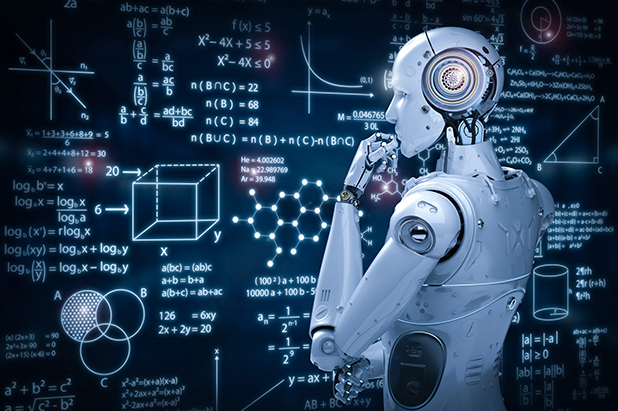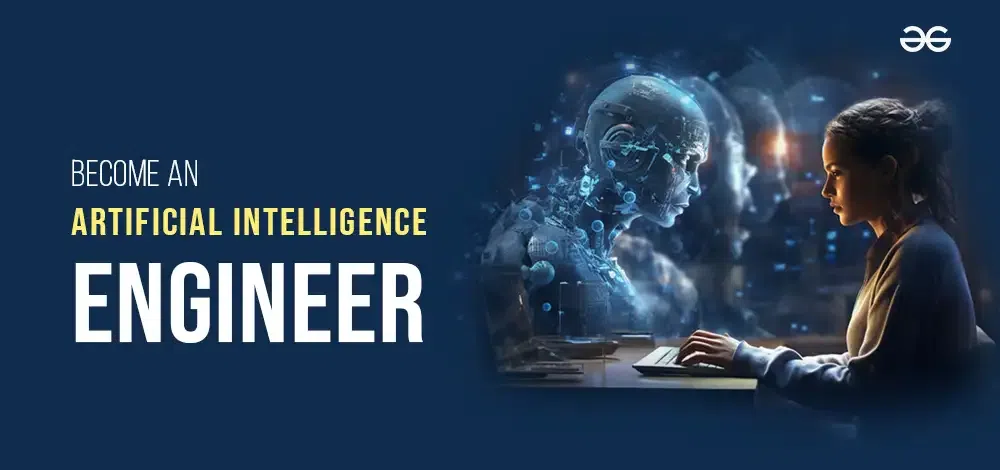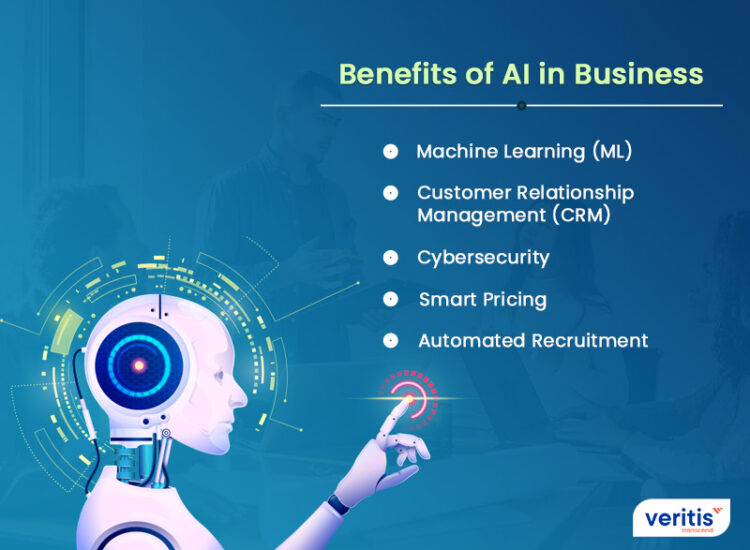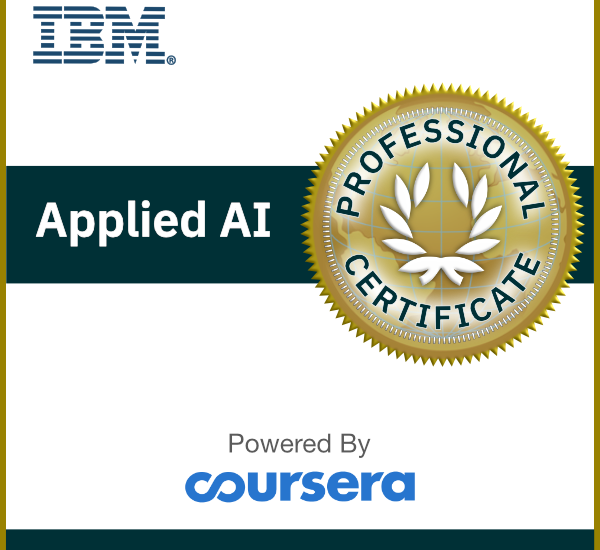Artificial intelligence (AI) is reshaping industries, driving innovations, and transforming our daily lives. From healthcare to finance to autonomous vehicles, AI’s impact is undeniable. But behind these revolutionary changes are the brains that make it all happen – the Artificial Intelligence Engineers. In this article, we’ll explore the role of an AI engineer, their importance in today’s tech world, and how you can become one.
Toc
Introduction to Artificial Intelligence (AI) and its Growth

AI has experienced exponential growth over the past decade. What began as a conceptual field has now evolved into a practical and essential technology. AI systems can now perform tasks that previously required human intelligence such as visual perception, speech recognition, decision-making, and language translation. This unprecedented growth has opened up numerous opportunities for skilled professionals to drive the future of technology. One such profession is being an AI engineer.
Understanding the Role of an Artificial Intelligence Engineer
An AI engineer is a skilled professional who designs, builds, and maintains AI systems. They are responsible for developing algorithms and implementing them into real-world applications. They possess a strong background in computer science, mathematics, and programming languages such as Python, Java, and C++. Their primary goal is to create intelligent machines that can perform human-like tasks efficiently.
Some common responsibilities of an AI engineer include:
- Conducting research on emerging concepts and techniques related to AI
- Designing and developing machine learning models
- Analyzing data sets to develop insights and improve performance
- Collaborating with cross-functional teams to integrate AI into products and services
- Implementing quality control measures to ensure the accuracy and reliability of AI systems.
Why Artificial Intelligence Engineers are in High Demand
As businesses across industries are actively incorporating AI into their operations, the demand for skilled AI engineers is continuously growing. According to a report by LinkedIn, AI specialist roles have seen a 74% annual growth rate in recent years. This trend is expected to continue as companies increasingly rely on automation, predictive analytics, and machine learning algorithms. Additionally, with emerging technologies such as autonomous vehicles, virtual assistants, and chatbots gaining popularity, the need for competent AI engineers will only rise.
Who is an AI Engineer? – Role, Responsibilities, and Skills Required

An Artificial Intelligence Engineer is a highly specialized professional responsible for the creation, testing, and deployment of advanced AI models and algorithms. These engineers play a crucial role in the development of intelligent systems that can analyze data, learn from experiences, and make informed decisions. They work extensively with vast datasets to develop machine learning models capable of solving complex problems across various industries, from healthcare to finance and beyond. Here’s a closer look at their multifaceted role:
Responsibilities
- Designing AI Models and Algorithms: They begin by conceptualizing and designing innovative AI models that address specific challenges faced by organizations. This involves a deep understanding of the problems at hand and creating algorithms that can process and interpret data effectively.
- Developing Machine Learning Applications: AI Engineers develop applications that leverage machine learning techniques to automate processes, enhance user experiences, and provide actionable insights.
- Collaborating with Data Scientists and Other Engineers: Effective collaboration is key; these engineers often work alongside data scientists to refine models, share insights, and ensure that applications perform optimally. Teaming up with other engineers also helps integrate AI systems into existing infrastructure.
- Improving the Performance of AI Systems: Continuous monitoring and testing are essential. AI Engineers analyze the performance of deployed models and make necessary adjustments to improve accuracy and efficiency.
- Deploying AI Models into Production Environments: Once models are developed and tested, they oversee the deployment process, ensuring that the models function seamlessly in real-world applications and environments.
Skills Required
- Strong Programming Skills: Proficiency in programming languages such as Python, Java, and C++ is essential for writing efficient code and developing algorithms that power AI applications.
- Proficiency in Machine Learning Techniques: A solid understanding of machine learning techniques and algorithms is crucial for creating models that can learn from data and adapt over time.
- Knowledge of Data Structures and Database Management: AI Engineers must be adept at managing data efficiently, which includes understanding various data structures, database systems, and data retrieval techniques.
- Familiarity with Cloud Computing Platforms: Knowledge of cloud computing services such as AWS, Google Cloud, or Azure is important, as many AI applications are deployed on these platforms for scalability and accessibility.
- Ability to Work with Large Datasets: An AI Engineer must be comfortable handling large volumes of data and performing complex data analysis to derive meaningful insights.
Additional Skills
- Strong Knowledge of Programming Languages: In addition to Python, proficiency in languages like R and Java can enhance their ability to tackle a wider range of problems.
- Proficiency in Machine Learning Frameworks: Familiarity with frameworks like TensorFlow, Keras, and PyTorch is essential for building and training sophisticated models efficiently.
- Understanding of Data Science and Statistical Analysis: A solid grasp of data science principles and statistical methods is vital for interpreting results and making data-driven decisions.
- Expertise in Neural Networks and Deep Learning: Knowledge of neural networks and deep learning techniques allows AI Engineers to develop models that can recognize patterns and make predictions with high accuracy.
- Problem-Solving Skills and Creative Thinking: The ability to think critically and creatively is essential for overcoming challenges and innovating new solutions in the rapidly evolving field of artificial intelligence.
With the increasing demand for AI solutions across various sectors, the role of an Artificial Intelligence Engineer is becoming increasingly critical, making it a rewarding career choice for those passionate about technology and innovation.
Steps to Become an Artificial Intelligence Engineer

To embark on a career as an Artificial Intelligence Engineer, aspiring individuals should follow a structured pathway to build the necessary skills and expertise. Here are the key steps to consider:
Develop a Strong Foundation in Mathematics
To excel as an Artificial Intelligence Engineer, one must possess a robust understanding of mathematical concepts, particularly in areas such as linear algebra, calculus, probability, and statistics. These mathematical principles underpin many machine learning algorithms and techniques. For instance, linear algebra is essential for understanding data structures and transformations, while calculus is crucial for optimizing algorithms. Additionally, a firm grasp of probability and statistics aids in making data-driven decisions and assessing the accuracy of models. Aspiring AI engineers should consider taking courses or using online resources to strengthen their mathematical knowledge, as it is a fundamental aspect of designing and implementing effective AI solutions.
Gain Proficiency in Programming
As previously mentioned, programming skills are vital for AI engineers. Beyond just familiarity with basic programming languages like Python and Java, prospective engineers should delve deeper into various libraries and frameworks specific to AI and machine learning. Mastery of libraries such as NumPy for numerical computations, Pandas for data manipulation, and Matplotlib for data visualization will undoubtedly enhance coding proficiency. Additionally, engaging in coding challenges and contributing to open-source projects can provide practical experience and bolster one’s programming abilities, setting a strong foundation for a successful career in artificial intelligence.
Acquire Hands-On Experience
Practical experience is essential in the journey to becoming an AI engineer. Internships, co-op programs, and relevant project work can provide invaluable opportunities to apply theoretical knowledge in real-world scenarios. Engaging in personal projects, whether through data analysis competitions like Kaggle or building machine learning models, can significantly enhance one’s portfolio. These experiences not only enable mastery of technical skills but also foster collaboration and problem-solving abilities that are crucial in the field of artificial intelligence.
Pursue Relevant Educational Qualifications
While self-learning and hands-on experience are beneficial, obtaining a formal education can prove advantageous. Many AI engineers have degrees in computer science, data science, or related fields. A Master’s degree or PhD can further enhance prospects, especially for those aiming to work in advanced research roles. Additionally, pursuing relevant certifications in machine learning or AI-related technologies can demonstrate expertise and commitment to the field, providing a competitive edge in the job market.
Stay Updated with Industry Trends
The field of artificial intelligence is rapidly evolving, making it important for aspiring engineers to stay informed about emerging technologies and trends. Regularly engaging with academic journals, attending conferences, and participating in webinars can provide insights into the latest advancements and research in the AI space. Following influential figures and organizations on platforms like LinkedIn or Twitter can also keep one abreast of industry news and developments, fostering a continuous learning mindset essential for innovation in AI.
Education and Career Paths for Aspiring AI Engineers

To become an AI engineer, one typically needs a strong educational background in computer science, data science, or related fields. Here are the steps:
1. Educational Background
- A Bachelor’s degree in Computer Science, Data Science, Mathematics, or related fields is the foundational step towards a successful career in AI. This degree equips individuals with essential programming skills, statistical knowledge, and analytical thinking.
- While advanced degrees such as a Master’s or Ph.D. can significantly enhance one’s qualifications and open doors to research roles, they are not always necessary for entry-level positions in the industry.
- Online courses and certifications in AI, machine learning, and data science are valuable resources for gaining specific skills and knowledge, especially from reputable platforms like Coursera, edX, or Udacity. These courses often include hands-on projects that provide practical experience.
2. Gaining Experience
- Securing internships and entry-level positions within tech companies is crucial for gaining hands-on experience and understanding real-world applications of AI technologies. These roles often provide mentorship and networking opportunities that can be incredibly beneficial for career growth.
- Participating in AI projects or hackathons can not only boost your skills but also allow you to collaborate with others passionate about the field. These experiences can lead to innovative solutions and enhance your problem-solving abilities.
- Building a portfolio of AI projects is vital for showcasing your skills to potential employers. This portfolio could include personal projects, contributions to open-source initiatives, or collaborations with peers, illustrating your proficiency in various AI techniques and tools.
3. Continuous Learning
- The field of AI is rapidly evolving, making it essential to stay updated with the latest advancements, trends, and technologies. Subscribing to relevant journals, blogs, and podcasts can help you keep your knowledge current.
- Engaging with AI communities, both online and offline, can provide support, inspiration, and insights into emerging trends. Attending conferences and networking events allows you to connect with industry experts, share ideas, and learn from thought leaders in the field.
- Pursuing further certifications and specializations can enhance your expertise in niche areas of AI, such as natural language processing, computer vision, or ethical AI. This commitment to continuous learning not only keeps your skills sharp but also demonstrates your dedication to professional growth in this dynamic industry.
Conclusion
Becoming an AI engineer is a multi-faceted journey that combines formal education, practical experience, and a commitment to lifelong learning. As the demand for skilled professionals in artificial intelligence continues to grow, it is vital for aspiring engineers to develop a robust skill set that encompasses both technical expertise and problem-solving capabilities. By leveraging educational opportunities, gaining hands-on experience, and staying abreast of industry trends, individuals can position themselves for success in this dynamic and rapidly evolving field. Ultimately, the pursuit of knowledge and innovation will not only advance one’s career but also contribute to the transformative potential of AI technologies in addressing complex global challenges.





